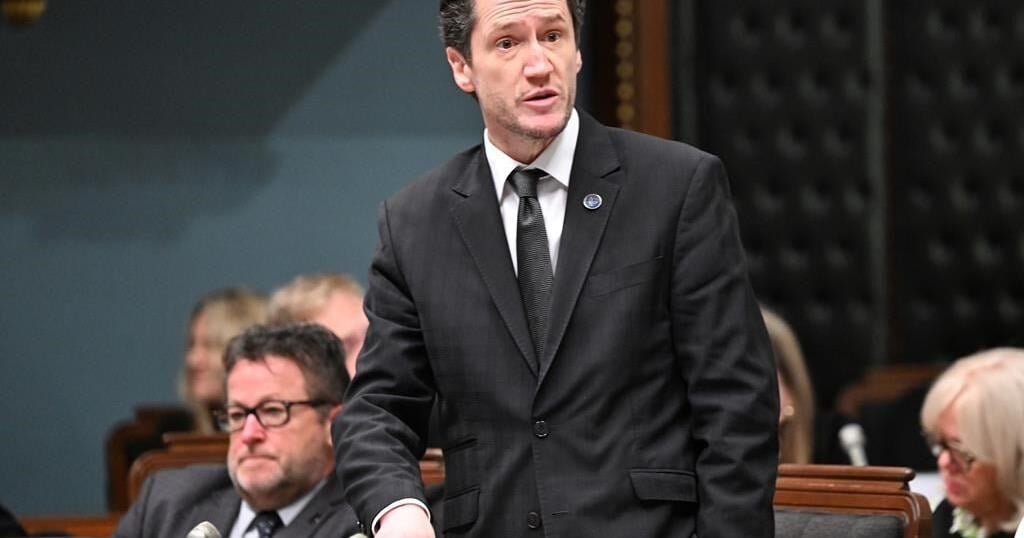MONTREAL – Quebec has introduced new restrictions on Atlantic salmon fishing because of annual fish migrations that are well below average in most of the province’s rivers.
But a conservation group that represents the interests of Atlantic salmon fishers in Quebec believes the province should go further.
While it was satisfied with the changes, the exceptional nature of this year’s salmon runs justifies a more cautious approach, said Normand Fiset, president of the Fédération québécoise pour le saumon atlantique.
“In order for us to be coherent with our conservation strategies, we recommend to go (100 per cent) catch and release, at least for the rest of this season,” Fiset said. “And we’re going to have to sit down during the winter with (the environment department) to figure out what kind of management plan to put in place starting 2025.”
The restrictions issued by the province’s environment department went into effect July 25. They apply to rivers in the Lower St-Lawrence region, the provincial capital, the North Shore including Anticosti Island, the Gaspé Peninsula and Saguenay-Lac-St-Jean.
The new rules for rivers in southern Quebec prohibit sport fishers from catching salmon that are larger than 63 centimetres and that have spent two or more winters at sea. Salmon that size are predominantly female and are responsible for “significant” deposits of eggs in rivers, the government says. The rules are in place until at least the end of this year’s season in September.
For grilse — small salmon — the daily quotas vary from river to river. A grilse is a young Atlantic Salmon that has returned to freshwater to spawn after spending a single winter feeding at sea.
For rivers classified as “healthy,” the daily number of grilse permitted to be caught per fisher has dropped from two to one. Fishers will be allowed to keep one and sometimes zero salmon on rivers labelled “caution,” depending on the precarity of the stock. In rivers classified as “critical,” no salmon at all is permitted to be kept.
As for catch and release fishing, the new rules reduce the daily quota from three catches to two in all of the affected regions except the lower North Shore, where quotas were previously non-existent and are now set at three.
Quebec has left open the possibility of changing the rules as of Aug. 1, Fiset noted.
While grilse don’t have a huge affect on reproduction, Fiset said that given the current situation it’s better to be prudent and require fishers to release all salmon caught over the next few weeks.
Quebec is the only jurisdiction that manages its Atlantic salmon fishery; the other provinces rely on the federal fisheries department.
In an open letter published Tuesday in Le Soleil newspaper, some fishers called for a moratorium on recreational salmon fishing. But Myriam Bergeron, the salmon federation’s executive director, said in an interview that a moratorium wouldn’t lead to more salmon returning to Quebec’s rivers.
The province’s rivers remain quite productive, Fiset said, but fewer fish are returning to spawn after spending the winter at sea.
“Close to every river that runs into the (Gulf of St. Lawrence) is experiencing that decline and if we compare other rivers, some in Nova Scotia, Newfoundland and northern Labrador, which run directly into the Labrador Sea, don’t seem to be having the same kind of problem,” Fiset said.
There has been a higher than usual mortality rate for grilse in recent years, Fiset said, and fishers expected there to be fewer of them returning this year to the province’s rivers. “We’re not quite sure what it is, nobody’s sure of it,” Fiset said of the underlying reasons.
“We know that the source of the problem is probably the warming of the sea surface temperature in the Gulf of St. Lawrence because it seems like most of the rivers that run into the gulf are more affected than other rivers.”
Fiset said he hopes to get all interested parties on the same page. “I think it’s very important that we mobilize everybody that’s involved in Atlantic salmon conservation in North America … to get a better grasp of what’s going on at sea,” Fiset said.
This report by The Canadian Press was first published July 31, 2024.
